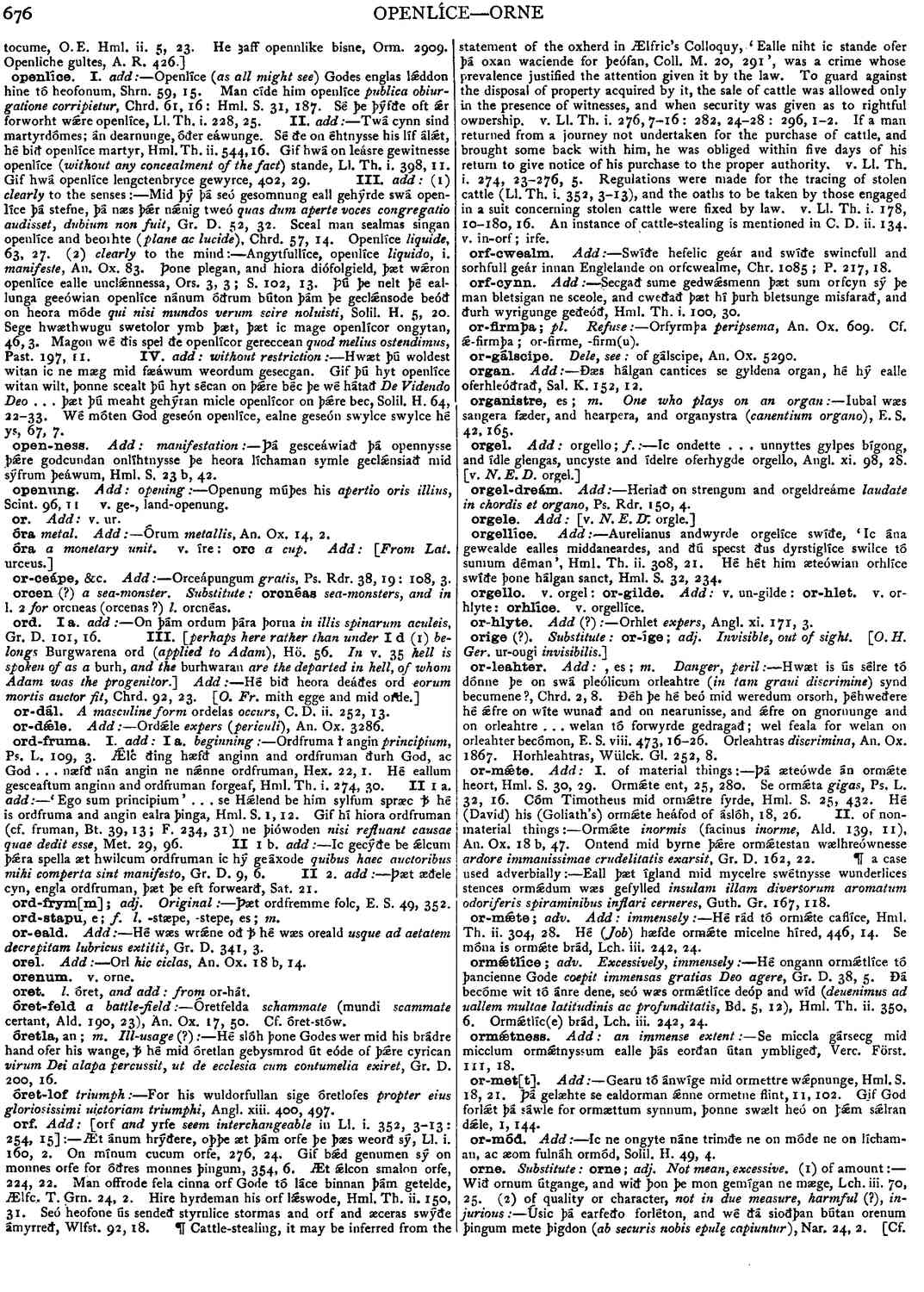orf
-
Æt ánum hrýðere, oþþe æt þám orfe þe þæs weorð sý,
- Ll. i. 160, 2.
-
On mínum cucum orfe,
- 276, 24.
-
Gif bǽd genumen sý on monnes orfe for óðres monnes þingum,
- 354, 6.
-
Æt ǽlcon smalon orfe,
- 224, 22.
-
Man offrode fela cinna orf Gode tó láce binnan þám getelde,
- Ælfc. T. Grn. 24, 2.
-
Hire hyrdeman his orf lǽswode,
- Hml. Th. ii. 150, 31.
-
Seó heofone ús sendeð styrnlice stormas and orf and æceras swýðe ámyrreð,
- Wlfst. 92, 18. ¶
-
If a man returned from a journey not undertaken for the purchase of cattle, and brought some back with him, he was obliged within five days of his return to give notice of his purchase to the proper authority. v. Ll. Th. i. 274,
- 23-276, 5.
-
Regulations were made for the tracing of stolen cattle (Ll. Th. i. 352, 3-13), and the oaths to be taken by those engaged in a suit concerning stolen cattle were fixed by law. v. Ll. Th. i. 178,
- 10-180, 16.
- An instance of cattle-stealing is mentioned in C. D. ii. 134.
Bosworth, Joseph. “orf.” In An Anglo-Saxon Dictionary Online, edited by Thomas Northcote Toller, Christ Sean, and Ondřej Tichy. Prague: Faculty of Arts, Charles University, 2014. https://bosworthtoller.com/56755.
Checked: 0